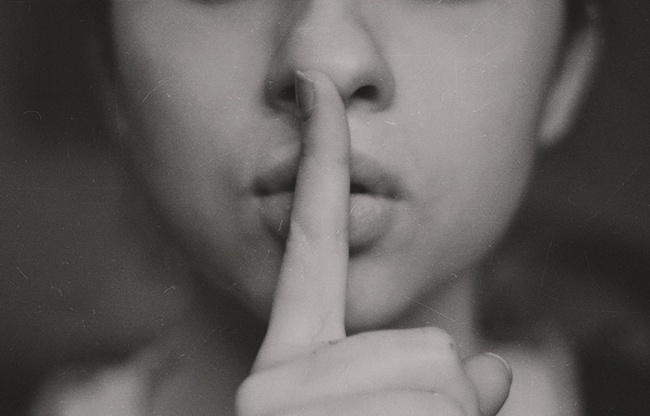I am an idealist. Since I was a little girl, I’ve held this innate belief of ideals over practicality. I don’t look at facts. I look at hope beyond reasonable explanation.
Some would call people like myself visionaries, wishful thinkers, romanticists, and fantasizers. And when you put it like that it seems hopeful, albeit naïve. I’ve staked my life on hope: with who I am, what I believe, and what I deem relationships to be capable of. Because deep down I believe there is great good in all of us. But I believe that the ways of the world can just press down on us, causing us to respond in all sorts of unhealthy, self-protecting ways instead of in a manner of love.
But can I be honest with you? Deep down, we are not really that good. We are selfish, broken and many times nearly impossible to deal with.
I know this is not a place to talk about politics or religion per se, and that has always bothered me – not the idea of talking about these things but the idea that we have to be cautious in talking about almost everything that matters to us.
Why are we so opposed to hearing people speak hard things? Why are we so volatile when someone says something that doesn’t compute in our native dialect? Why don’t we slow our own speech, attune our ears, and try to speak and understand one another? Are we even willing to put ourselves in that kind of risky scenario? To speak another language? To understand a different tongue? To stop shouting and perhaps…listen?

I have an answer but I can’t share it with you because of #weoffendeasily. You might not agree with it because this issue of morality is so personal and trigger happy. Ratings may go down; followers could decrease; there is the issue of the “unfriend” (Can you unfriend me on a corporate blog. I bet there is a way).
This is the culture we’ve created. Where many shout loudly and the rest sit in silence.
I won’t tell you what I really want to say, because well I can’t. But I will get into what started this blog post…
Disappointment.
This idealist girl hit a wall; a big hard wall that cannot be moved. I realized it for the very first time after repeated attempts of trying to break through it. And it broke me – I shut myself in my room and did not come out to eat or go to the bathroom. I cried a lazy river as this disappointment broke me. Because I realized, maybe for the very first time in my idealistic, bubble-like world, that some people simply are not capable of change or choose not to. I believe their opposition to it may be the same reason I started this piece in the first place.
Hope has left us idealists disappointed before, so we cease future attempts.
Last year was a year of forward-facing, renewed hope opportunities that repeatedly resulted in the same disappointments. My hope has begun to fade. I may no longer be an idealist. And truth be told, I am sad about that because hope has been a driving force of my identity for so long.
This year, as I engage all that is set before me for the year 2020, I engage it with a small strand of hope but also with a healthy dose of reality. So, to all my fellow idealists out there, this is how I am managing the shock of losing this part of me:
- Expectation– if our hope is in one another, we will be endlessly disappointed. If there is one thing that humanity has proven throughout all eras of civilization, it’s that we are fallible. Stop banking on a person to fulfill you in matters of hope. We simply are not capable of meeting one another’s expectations, all the time. We will, at times, let you down.
- People pleasing– this sort of goes hand and hand with the last one but if you aim faithfully to please all people, you most assuredly will be disappointed in yourself. People-pleasing forces an adaptation of our identity. (This isn’t a license to be a jerk. You can be kind and eliminate people-pleasing).
- Identity– if your identity is rooted in something that crumbles and fades or is held by the hands of another, you will waiver in the confidence of who you are. For instance, if you have always wanted to be a mother and your children are grown and gone, you may have lost a sense of who you were as your whole being was wrapped up in raising your children. You must be uniquely you while still being a parent to them if that makes sense. You are still your own person, not solely so and so’s mom. Figure out who that empty-nester is. You may find you like her much more than you realized.
- Think outside the box but don’t force people to think they’re with you – many visionaries made their way alone, failure upon failure until they met their destiny. In Lysa Terkeurst’s book, The Best Yes, she refers to what she calls Fosbury moments. Dick Fosbury was an Olympian high-jumper that changed the technique of high-jumping in the creation of the Fosbury flop. His technique not only won him the gold medal in 1968 but is a method predominantly used today. But at the time, people thought his technique odd. Let me tell you what he did! He moved away from the bar and went low, to aim high. Get away from the bar people set for you. He did what seemed completely unnatural but it powered him on to Olympic gold. Like a shuttle rocket, he used the ability to go low to thrust upward toward his goal.
As you set your goals this year, let no one else determine your end goal by changing who you aim to be, idealist or otherwise. Visionaries rarely land within the expectation of another.
And if you are an idealist like me, do not let anyone or anything dim that part of you. The world is harsh enough; hold on to that optimistic part of you. Coupled with a realistic view of the current world, I hope to find a happy medium – and so can you.











“Visionaries rarely land within the expectation of another.”
Love this line. ♡♡♡
Thank you, from one visionary to another 🙂
Excellent writing my friend. I tend to shy away from the taboo topics because intact relationships are everything to me. You may say that not being able to dig deep and discuss hard stuff isn’t a real relationship. But if truth be told I already have an idea of what others believe just by comments, or posts or body language. So in many ways I choose to to accept them where they are and hopefully they do the same. There are those inner circle friends/family safety has been built with that I sometimes feel can go down that road with. But ultimately I will back off if I feel the friendship would suffer. Hope this makes sense. I’m out in a limb here. ☺️
Thank you Robbie.
Interestingly enough I’ve been reading a book called, Rewriting Your Emotional Script by Becky Harling. In it it addresses the differences between a Peacemaker and a Peacekeeper. Peacekeepers- Don’t rock the boat, push issues under the carpet, compromise boundaries, triangle- he said/she said, demonstrate passive/aggressive behavior, primary concern-avoiding conflict. Peacemakers- Make waves to create change, bring issues to the surface, clarify boundaries, talk directly to people, express healthy anger, primary concern-reconciliation.
I am sure you are not alone in staying away from taboo topics. Would you say this topic is taboo? If so, what makes it taboo? In tact relationships are important but what makes/keeps them in tact?
Not at all…I’m encouraged you shared your thoughts. And that’s an awesome book of Becky’s.
It’s when religion, sports teams, child rearing, politics or other polarizing issues surface and could cause a friendship to suffer I choose to express my opinion but not engage in divisive discussions. I believe I have good boundaries and am willing to do the hard work for reconciliation. Keeping a relationship intact for me is to appreciate other’s opinions allowing them to live their best life all the while being able to do the same for myself. If I need to interject/confront I will but I don’t believe expressing my opinion as more important or more right is a trail I’m willing to go down.
It’s my belief, in the society we live in today that relationships are often already suffering. All the issues mentioned above in and of themselves are divisive as everyone has such different views on them.
I agree with you on appreciating each others view points and doing the best to live our best life.
I don’t think it’s a matter of being more right or more important, it’s just having safe enough relationships to have hard conversations. I have relationships in which I can do that and relationships in which I can’t. Again, idealist in recovery, hence the post.
Thank you for your insights, I do appreciate it.
Comments are closed.